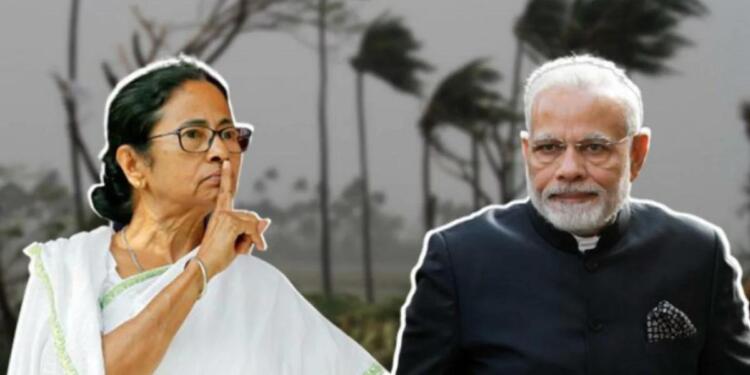The recent ruling by the Calcutta High Court to annul OBC certificates issued in West Bengal post-2010 has ignited significant controversy. This decision has faced opposition from West Bengal Chief Minister Mamata Banerjee, who has vowed to challenge the ruling for muslims. The West Bengal government’s criticism of the court’s stance on OBC reservation underscores a broader trend of politicizing constitutional issues for electoral advantages. This situation reflects a pattern where constitutional provisions are sometimes utilized as tools to counter political opponents.
Another contentious issue is the alleged inclusion of Bangladeshi immigrants and Rohingyas in West Bengal’s OBC list. Hansraj Ahir, the chairman of the National Backward Classes Commission (NCBC), has accused the West Bengal government of such practices, based on complaints received by the commission. Out of the 179 OBC groups recognized in West Bengal, 118 are identified as Muslim communities. The NCBC is actively investigating these allegations and has urged the state government to address the matter urgently.
Ahir also criticizes the division of OBC communities into categories A and B by the West Bengal government. Category A predominantly comprises Muslim backward castes, and Ahir argues that this segregation disproportionately benefits certain groups, which he views as undermining the principles of equality. He highlights discrepancies in admissions to medical colleges, noting that Muslims under category A have a higher representation compared to Hindus, suggesting an imbalance created by the state’s categorization system.
This complex situation illustrates the deep entanglement of politics, social justice, and constitutional principles in India. The debates around OBC reservations, the alleged misuse of these provisions, and the broader implications for social equity and political maneuvering continue to be a significant and contentious issue in Indian politics.
The Calcutta High Court’s recent ruling has annulled all Other Backward Classes (OBC) certificates issued by the West Bengal government after 2010. However, this decision will not affect individuals who have already secured jobs or are in the process of getting employment under the OBC quota.
The court emphasized that the list of backward classes must be compiled according to the West Bengal Backward Classes Commission Act of 1993. This new list is to be prepared by the West Bengal Backward Classes Commission and must be presented to the Assembly for final approval. While those included in the OBC list before 2010 will retain their status, all nominations made post-2010 have been nullified. Importantly, those who have secured employment or are undergoing recruitment under the OBC category post-2010 will not lose their jobs due to this ruling.
Key Points from the Calcutta High Court Decision:
– Approximately 5 lakh OBC certificates issued post-2010 are to be annulled.
– Certificates issued between 2011 and 2014 will be invalidated.
– Certificates issued prior to 2010 will remain valid.
– Individuals who obtained jobs or are in the process of recruitment under the OBC quota post-2010 will not be affected.
– A new OBC list will be prepared as per the West Bengal Backward Classes Commission Act of 1993 and presented to the Assembly for approval.
– Groups recognized as OBC before 2010 will maintain their status.
Mamata Banerjee’s Reaction(Muslim Appeasement):
West Bengal Chief Minister Mamata Banerjee has firmly rejected the High Court’s ruling, asserting that the state will not comply with the decision to revoke OBC certificates. She has framed the ruling as politically motivated, accusing the BJP of using the issue to target her administration ahead of elections.
“They got an order passed today, but I don’t accept it. When 26,000 people lost their jobs because of BJP, I had said that I would not accept it. Similarly, I am telling today, I do not accept the order today. We won’t accept BJP’s order. OBC reservation will continue. Imagine their audacity,” Banerjee stated.
She further criticized the timing of the decision, suggesting it is part of a broader strategy by the BJP to create division and unrest before the elections. Banerjee cited previous instances she believes are part of this pattern, including communal tensions and allegations of conspiracies.
Prime Minister Narendra Modi’s Response:
Prime Minister Narendra Modi has welcomed the Calcutta High Court’s decision, viewing it as a setback for the Trinamool Congress (TMC) and its alleged vote bank politics. Modi accused the TMC of distributing OBC certificates to Muslims solely to secure votes.
“This was done because the West Bengal government inexplicably gave OBC certificates to Muslims, only for the Muslim vote bank. This vote bank politics, this politics of appeasement, is crossing every limit,” Modi remarked.
Modi also criticized the TMC’s broader approach to minority rights, accusing them of prioritizing Muslims for government resources and benefits, which he argues contradicts the principles of the Indian Constitution. He highlighted the controversy around the allocation of government lands to the Waqf Board(constitues muslims) and the opposition to the Citizenship Amendment Act (CAA) as examples of this appeasement.
In summary, the Calcutta High Court’s ruling to revoke post-2010 OBC certificates in West Bengal has sparked a political storm. While Mamata Banerjee has condemned the decision as a politically motivated act by the BJP, Prime Minister Modi has endorsed it as a corrective measure against the TMC’s alleged vote bank politics. This ongoing dispute underscores the complex interplay between constitutional provisions, social justice, and electoral strategies in Indian politics.
ALSO READ:What is the Ex-Muslim Movement? When did it begin? How is it expanding so swiftly over the world?
























